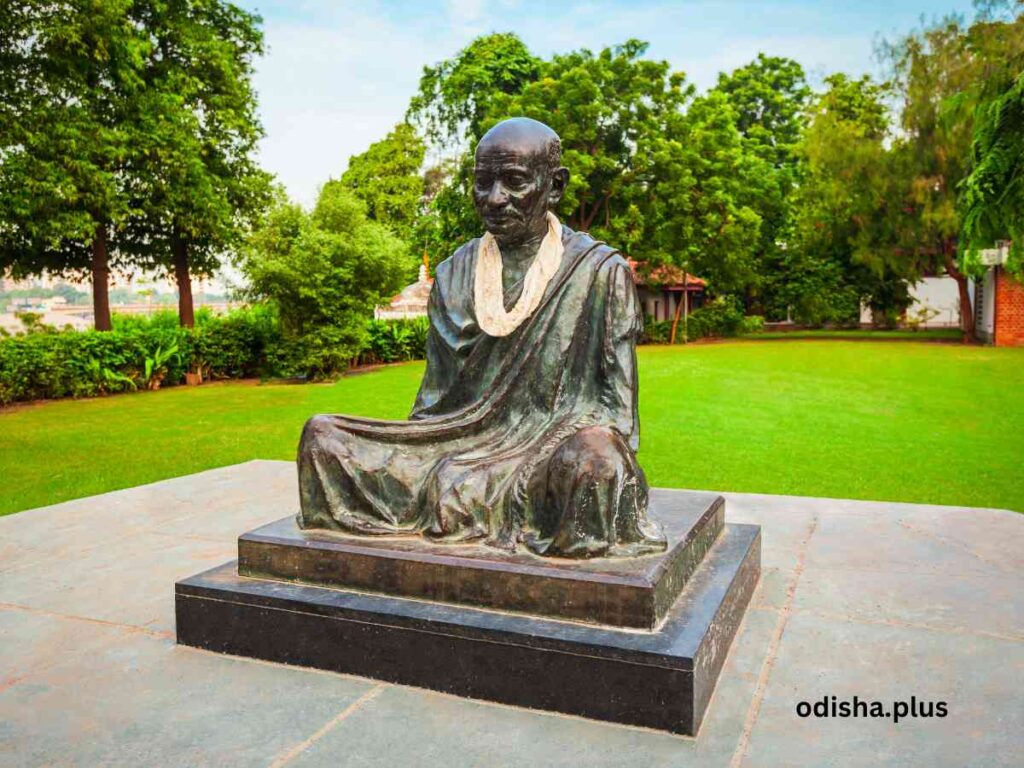Gandhi was one of the most iconic leaders of the 20th century, leaving an indelible mark for his seminal contribution to India’s struggle for freedom
Tejeswar Patnaik

Mahatma Gandhi, the Father of the Nation, is remembered for his immense contribution to India’s independence. On his 77th death anniversary, people across the country pay tribute to his legacy. While he is widely known for his principles of non-violence and truth, his leadership qualities also offer valuable lessons for today’s world, especially in management and governance. Understanding his leadership approach helps us learn how he inspired millions and brought about significant change.
Gandhi was one of the most iconic leaders of the 20th century, leaving an indelible mark for his seminal contribution to India’s struggle for freedom. His leadership was based on action, determination, and strong moral values. He faced both success and failure but always stayed committed to his goals.
One of the most classic examples of his leadership was the Dandi March, where he walked 240 miles from Ahmedabad to Dandi to protest against the British salt tax. This movement mobilized millions of Indians and showcased his ability to lead by example. His leadership was not based on authority but on inspiration, which made people follow him wholeheartedly.
John Maxwell, a well-known American leadership expert, and speaker once said: “A great leader’s courage to fulfill his vision comes from passion, not position. Leadership is not about titles, positions, or flow charts—it is about one life influencing another.”
This perfectly describes Gandhi, whose leadership was built on vision and influence rather than power or position. His approach teaches us that true leaders must adapt to changing times and inspire people to work towards a common goal.
Ethics of Leadership
For Gandhi, ethics and integrity form the bedrock of leadership. He believed that credibility comes from honesty and trust. His actions always matched his words, which is why millions believed in him.
In any organization, ethical values play a crucial role. If a company compromises its values, it risks losing trust and damaging its reputation. Just as Gandhi’s honesty made him the most adorable and influential leader, modern business leaders must uphold ethical standards to earn the confidence of their employees and customers.
Empowerment and Decentralization
Gandhi believed in empowering people and giving them the freedom to make decisions. He supported self-governance at the village level, encouraging local leadership and accountability.
This idea is widely followed in modern management, where businesses delegate decision-making to employees at different levels. When people feel responsible for their work, they perform better and contribute to the organization’s success. Decentralization leads to greater efficiency and innovation.
Conflict Resolution
Gandhi was a strong advocate of peaceful conflict resolution. He used dialogue, negotiation, and non-violent protests to fight injustice. His commitment to non-violence was evident when he suspended the Non-Cooperation Movement after the Chauri Chaura incident in 1922, where a violent mob killed 22 policemen. Gandhi believed that conflicts should be resolved through peaceful means rather than aggression. Gandhi said “Non-violence is the greatest force at the disposal of mankind” and this indicated his unwavering commitment to non-violent means to attain India’s freedom.
This approach is relevant in today’s workplaces. Conflicts are natural, but leaders must handle them through effective communication, active listening, and fair solutions. A collaborative and non-confrontational approach helps in maintaining harmony and teamwork.
Clarity in Communication & Self-Improvement
Gandhi was an excellent communicator. His speeches were simple yet powerful, and he could connect with people from all backgrounds. He always conveyed his ideas clearly, ensuring that his message was understood by everyone.
He also believed in continuous self-improvement. He regularly reflected on his actions, practiced self-discipline, and sought ways to improve himself. This is an essential quality for modern leaders—recognizing weaknesses, learning from mistakes, and striving for growth. Leaders who focus on self-improvement set an example for their teams and create a culture of learning.
Gandhi’s Legacy
Gandhi’s leadership was far ahead of his time. He did not just manage a freedom movement; he transformed the way people thought and acted. A true leader is not just someone who sets goals but someone who inspires others to believe in and work towards those goals.
In today’s world, management and leadership are often confused. Gandhi showed that a good leader does more than just organize and control—he motivates and empowers people. Business leaders must learn from this and focus not only on achieving targets but also on building a strong, inspired team.
Gandhi’s leadership principles—leading by example, ethical conduct, empowerment, conflict resolution, clear communication, and self-reflection—are highly relevant in today’s business world. Companies that adopt these values create workplaces based on trust, integrity, and long-term success.
By following Gandhi’s ideals, leaders can build organizations where values matter as much as profits. His teachings remind us that true leadership is about inspiring and uplifting others, ensuring lasting impact and progress.
(The writer is a former Dy General Manager of Bank of India. Views expressed are personal.)

























